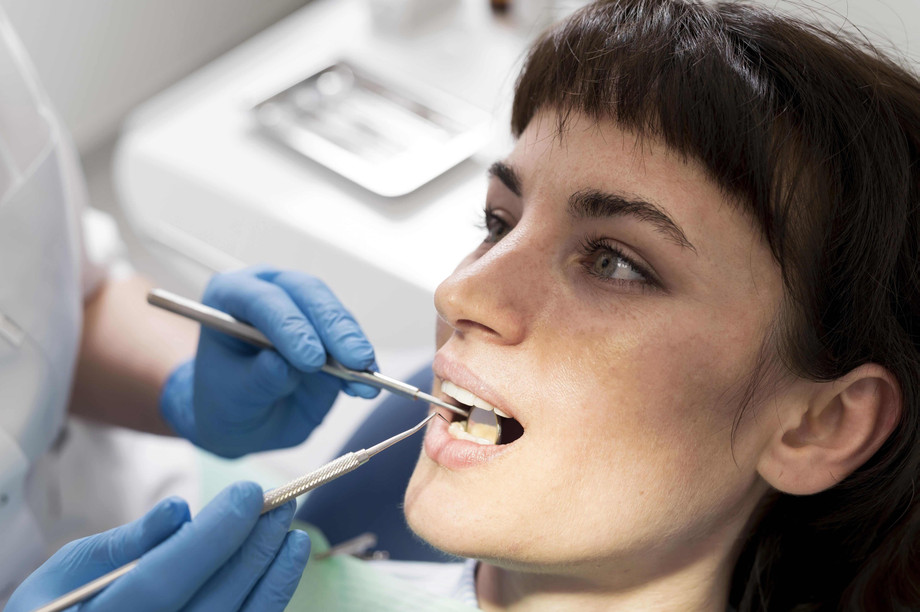Your Smile, Restored: A Guide for Best Dental Implants
A lack of teeth may affect one's self-esteem and ability to chew and speak properly. They have the potential to influence your self-esteem, speech clarity, and even your capacity to chew food efficiently. Fortunately, a game-changing option for restoring lost teeth is dental implants.
Discover everything about the best dental implants in this blog post. We'll go over the basics, including what they are, how the operation works, the pros and cons, and what to anticipate following the treatment.
Caring for Your Best Dental Implants:
A dental implant is a small, screw-like post, typically made of titanium, surgically placed into your jawbone. This post acts as an artificial tooth root, providing a stable foundation for a replacement tooth. The replacement tooth itself can be a crown, bridge, or denture, custom-designed to match your natural teeth in appearance and function.
The Implant Procedure: A Step-by-Step Look:
Getting the best dental implants is typically an outpatient procedure performed in multiple stages over several months. Here's a simplified breakdown of the process:
- Consultation and Planning: The dentist will first assess your oral health, jawbone density, and discuss your expectations. X-rays and CT scans may be required to determine the best placement for the implants.
- Implant Placement Surgery: During surgery, the dentist makes precise incisions in your gum tissue and inserts the implant posts into the jawbone. The area is then stitched closed, and a temporary restoration might be placed.
- Osseointegration: Over the next few months, the jawbone fuses with the implant in a process called osseointegration. This creates a strong, secure bond that allows the implant to function like a natural tooth root.
- Abutment Placement: Once osseointegration is complete, the dentist will place a small connector piece called an abutment onto the implant. This abutment acts as a bridge between the implant and the replacement tooth.
- Crown/Bridge/Denture Placement: Finally, the dentist attaches the custom-made artificial tooth (crown, bridge, or denture) to the abutment.
The Benefits of the Best Dental Implants:
The best dental implants offer a multitude of advantages over traditional bridges and dentures, including:
- Enhanced Functionality: Implants fuse with the jawbone, mimicking the function of natural teeth. This allows for improved chewing ability and clearer speech.
- Durability and Longevity: Implants are highly durable and can last a lifetime with proper care.
- Improved Aesthetics: Implants provide a natural-looking replacement for missing teeth, boosting your confidence and smile.
- Preserves Jaw Health: Unlike dentures, which can cause jawbone resorption over time, implants actually stimulate and preserve jawbone health.
- Increased Comfort: Implants feel and function very much like natural teeth, eliminating the discomfort associated with loose dentures.
Things to Consider: Drawbacks and Risks:
While getting the best dental implants offers significant benefits, there are also some factors to consider:
- Cost: Dental implants are a more expensive solution compared to dentures or bridges.
- Procedure Time: The entire implant process can take several months, with healing periods between stages.
Surgical Risks: As with any surgery, there are potential risks associated with implant placement, such as infection or bleeding. When a skilled dentist performs these procedures, the risks are typically low.
Who is a good candidate for the best dental implants?
The best dental implants are a viable option for most adults in good general and oral health. However, certain factors can affect candidacy, such as:
- Adequate Jawbone Density: Sufficient bone volume is necessary for successful osseointegration. Bone grafting procedures might be needed for individuals with insufficient bone density.
- Overall Health: Underlying health conditions like diabetes or uncontrolled gum disease may require special considerations.
Understanding Dental Implants:
Maintaining good oral hygiene is crucial for the long-term success of your best dental implants. This includes regular brushing, flossing, and professional dental cleanings to prevent gum disease and peri-implantitis, an infection around the implant. Your dentist will provide specific instructions on caring for your implants.
Getting Back Your Smile with Confidence:
Dental implants offer a life-changing solution for those with missing teeth. They provide a strong, natural-looking, and long-lasting replacement that can significantly improve your oral health, function, and overall confidence. If you're considering dental implants, consult with a qualified dentist to discuss if they're the right option for you.
Conclusion:
The best dental implants represent a significant advancement in dental technology, offering a life-altering solution for individuals with missing teeth. They provide a natural-looking, highly functional, and long-lasting option that can improve your oral health, confidence, and overall quality of life. While there are some cost considerations and a multi-stage process involved, the benefits of dental implants can be truly transformative. If you're seeking a permanent and reliable solution for missing teeth, consulting with a qualified dentist can help you determine if dental implants are the right choice for you. Take the first step towards reclaiming your smile and schedule a consultation today!




Comments
Post a Comment